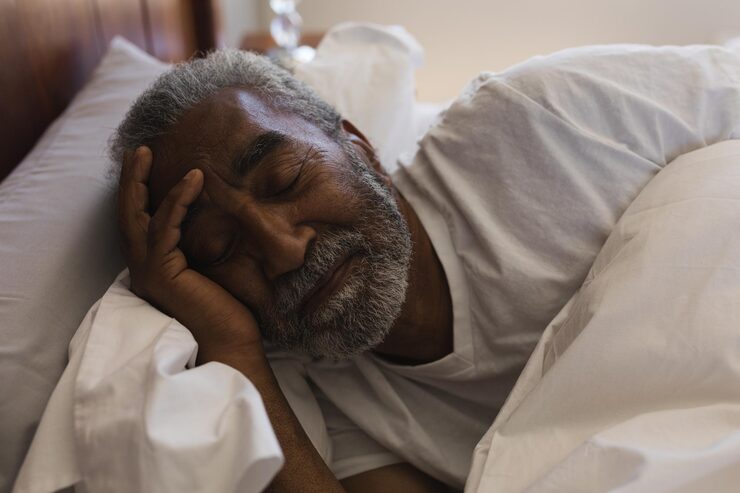Book Appointment Now

Sleep is essential for good health, energy, and overall well-being, but as people age, sleep patterns often change. Many older adults struggle with insomnia, waking up frequently, or feeling tired during the day. Unfortunately, there are many misunderstandings about sleep and aging. Some believe poor sleep is just part of getting older, while others think sleeping pills are the only solution.
As a geriatrician, I want to clear up five important facts and five common myths about sleep problems in older adults.
🔹 5 Facts About Sleep in Older Adults
- Sleep Changes with Age, But Poor Sleep Is Not Normal
As people age, sleep patterns change. Older adults tend to:
✅ Sleep earlier in the evening and wake up earlier
✅ Experience lighter sleep with more awakenings
✅ Have a reduced amount of deep sleep
However, constant trouble sleeping is not a normal part of aging. If sleep problems last for weeks or months, it’s important to find the cause and get help.
- Poor Sleep Can Affect Memory and Health
Lack of sleep is linked to memory loss, confusion, and a higher risk of dementia. Poor sleep also increases the risk of high blood pressure, diabetes, and falls. Getting enough quality sleep is just as important as eating well and exercising.
- Many Sleep Problems Have Treatable Causes
Common causes of poor sleep in older adults include:
✔ Pain from arthritis or other conditions
✔ Medications that interfere with sleep
✔ Frequent urination at night
✔ Sleep apnea, which causes breathing problems during sleep
Identifying and treating the underlying issue can greatly improve sleep quality.
- Napping Can Be Beneficial – In Moderation
Short naps (20–30 minutes) can boost energy and alertness without affecting nighttime sleep. However, long naps or napping too late in the day can make it harder to fall asleep at night.
- Good Sleep Hygiene Can Improve Sleep Without Medication
Simple changes can promote better sleep:
✔ Keep a consistent sleep schedule
✔ Avoid caffeine, alcohol, and heavy meals before bed
✔ Make the bedroom cool, dark, and quiet
✔ Stay active during the day but avoid exercise too close to bedtime
🔻 5 Common Myths About Sleep in Older Adults
- “Older Adults Need Less Sleep”
❌ Myth: As you age, you need less sleep.
✅ Truth: Most older adults still need 7–8 hours of sleep per night for good health.
- “Waking Up at Night Means You Have Insomnia”
❌ Myth: If you wake up at night, you have a sleep disorder.
✅ Truth: Light sleep and brief awakenings are normal with age. However, waking up frequently and struggling to fall back asleep could signal an underlying issue.
3. “Sleeping Pills Are the Best Solution for Insomnia”
❌ Myth: Sleep medications are safe and effective long-term.
✅ Truth: Sleeping pills can cause drowsiness, confusion, and falls in older adults. They should only be used short-term and under medical supervision.
- “Daytime Sleepiness Is Just a Normal Part of Aging”
❌ Myth: Feeling sleepy during the day is expected in older adults.
✅ Truth: Constant daytime sleepiness can be a sign of poor nighttime sleep, sleep apnea, or an underlying medical condition.
- “Drinking Alcohol Before Bed Helps You Sleep”
❌ Myth: Alcohol relaxes the body and helps with sleep.
✅ Truth: While alcohol may help you fall asleep faster, it disrupts deep sleep and causes more awakenings during the night.
Final Thoughts: How to Improve Sleep as You Age
Quality sleep is essential for staying healthy and active. If you’re having trouble sleeping, try these tips:
✔ Stick to a consistent sleep schedule
✔ Avoid screens (TV, phone, tablet) before bed
✔ Get morning sunlight to regulate your body’s clock
✔ Limit caffeine and alcohol intake
✔ See a doctor if sleep problems last more than a few weeks
Getting good sleep can boost your mood, energy, and overall health—no matter your age!

